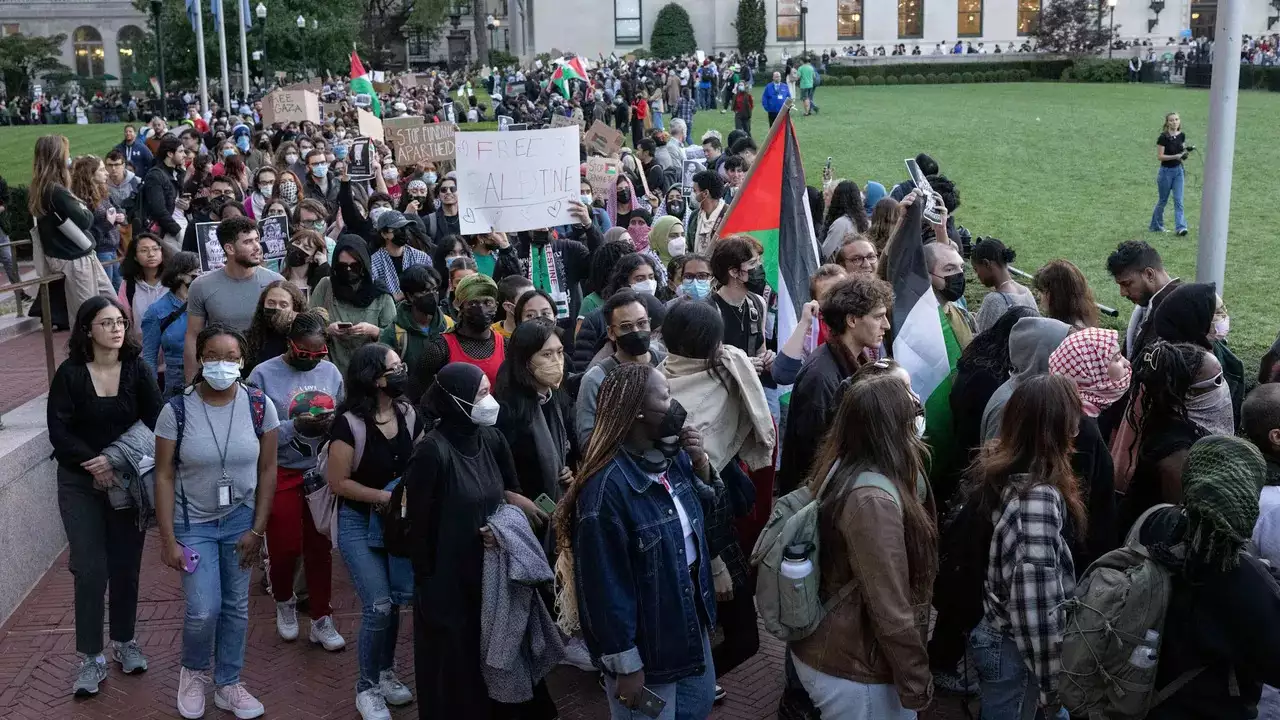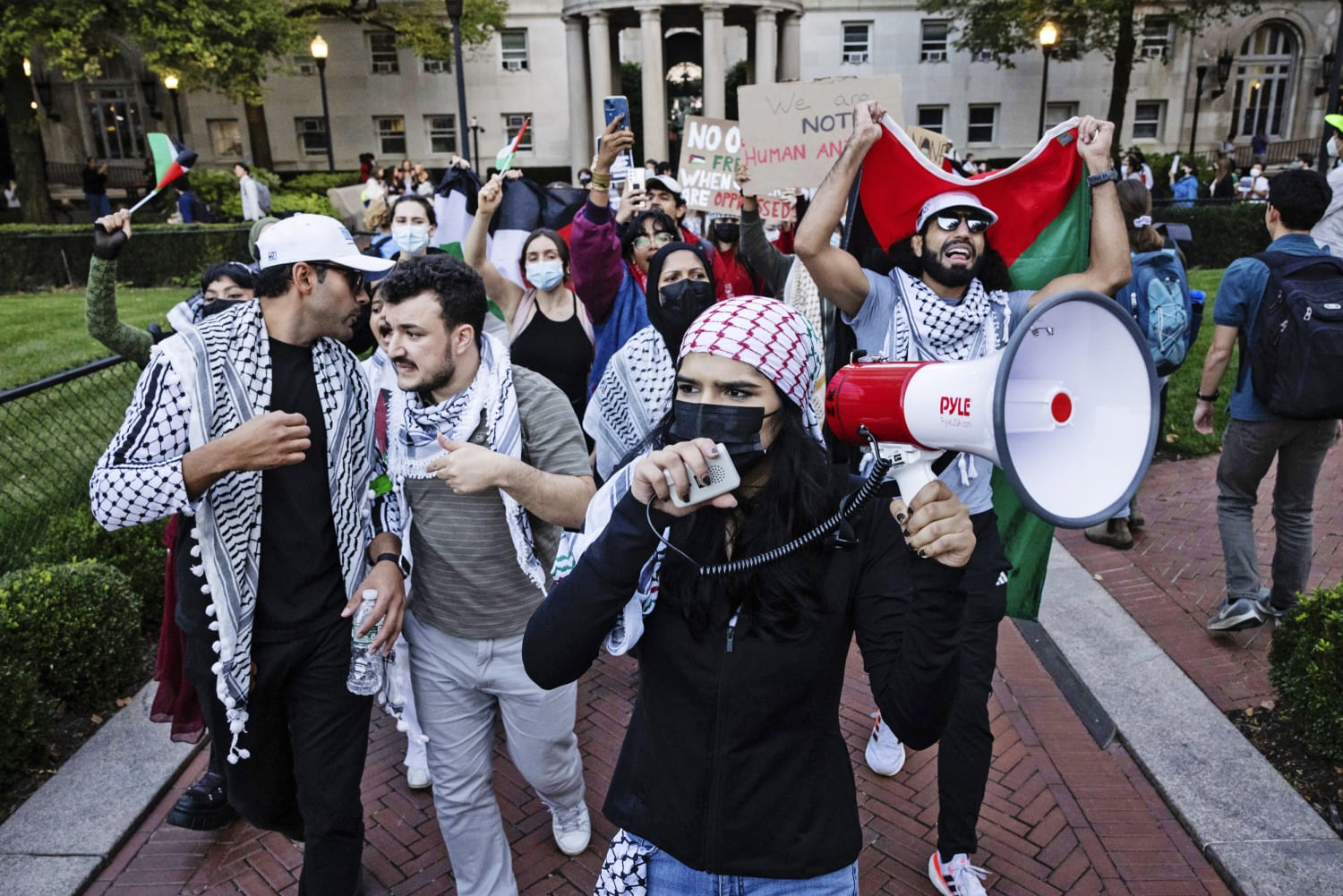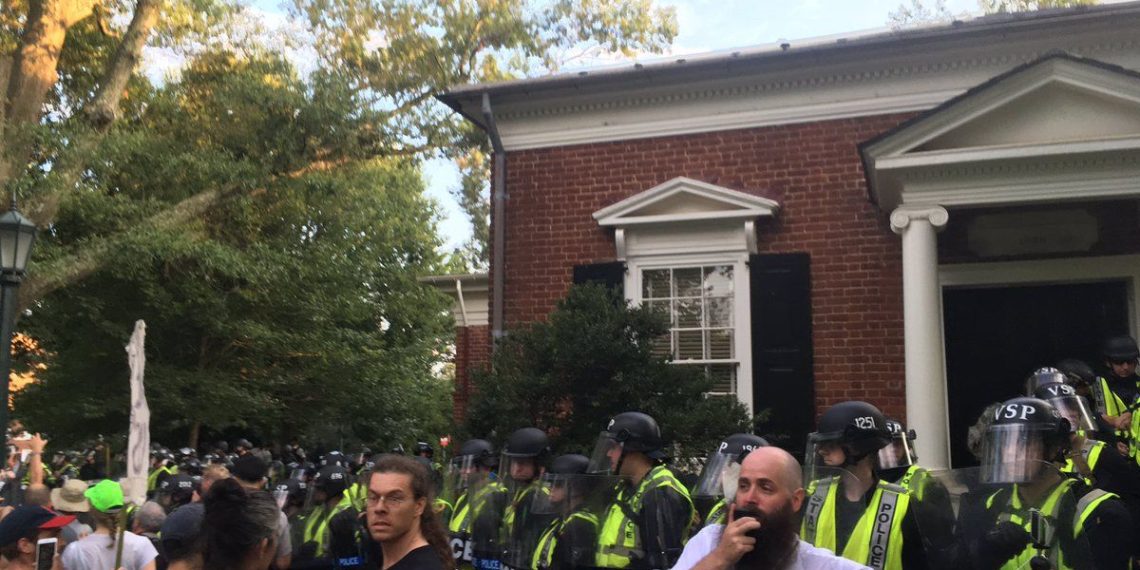Amid escalating tensions surrounding the Israel-Hamas conflict, at least 25 pro-Palestinian protesters were arrested at the University of Virginia (UVA), where police dispersed an encampment.
The incident marked a shift in the largely peaceful protests on UVA’s Charlottesville campus, with officers seen using riot gear and chemical spray.
Across the United States, students have rallied at numerous universities, calling on President Biden to take action to halt the violence in Gaza and urging divestment from companies supporting Israel’s government.

At UVA, protesters violated university policies by setting up tents and using amplified sound, prompting police intervention.
While confrontations have sparked arrests at some institutions, others have seen disruptions without escalation.
At the University of Michigan’s commencement, pro-Palestinian protesters briefly disrupted the ceremony, prompting police intervention. However, no arrests were made, with university officials affirming support for free speech.
Campus protests have become a contentious issue amid a polarized political landscape. At the University of Mississippi, an incident involving racist taunts directed at a Black protester drew widespread condemnation.
Politicians, including Georgia Representative Mike Collins and Senator Lindsey Graham, weighed in on the protests, with Graham praising counter-protesters at the University of North Carolina at Chapel Hill.
The protests reflect deepening divisions over the Israel-Gaza conflict, with universities grappling with security concerns amid demonstrations.

Several schools, including Columbia University, have called in police to maintain order, resulting in over 2,000 arrests nationwide.
The demonstrations underscore the complexities of addressing international conflicts within university settings, where diverse viewpoints clash.
As the Israel-Hamas conflict continues, campuses face the delicate balance between upholding free expression and ensuring safety amidst heightened tensions.





